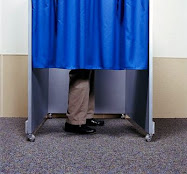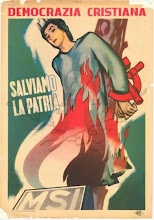I was sitting in a New York City restaurant with Jonathan Prince, John Edwards' deputy campaign manager, and at that moment the future of our candidate's quest for president was being decided.
But not by us. All that Jonathan and I knew was that we each had two air tickets: one for Atlanta, in case we were going there the next morning to prep the senator for a televised debate; and the other for New Orleans, in case Edwards was flying there instead to announce he was dropping out of the race. Jonathan told me that he felt there was maybe an 80 percent chance that Edwards would end his campaign. Nah, I said, it was more like 50/50.
 It was not until much later that night that the text message came: Use the New Orleans ticket. And that's when we found out it was all over.
It was not until much later that night that the text message came: Use the New Orleans ticket. And that's when we found out it was all over.
I don't know, and will probably never know, just how Senator Edwards arrived at his decision. He isn't one to pull a bunch of people into a room and take a vote. He asks you individually what you think, and you basically get one shot to make your argument. I got my chance. And for the first time in thirty years of political work, I didn't go with my gut.
I didn't tell him what I should have told him: That I had this feeling that if he stayed in the race he would win 300 or so delegates by Super Tuesday and have maybe a one-in-five chance of forcing a brokered convention. That there was a path ahead that would be extremely painful, but could very well put him and his causes at the top of the Democratic agenda. And that in politics anything can happen-even the possibility that in an open convention with multiple ballots an embattled and exhausted party would turn to him as their nominee. I should have closed my eyes to the pain I saw around me on the campaign bus, including my own. I should have told him emphatically that he should stay in. My regret that I did not do so-that I let John Edwards down-grows with every day that the fight between Hillary Clinton and Barack Obama continues.
To explain why I didn't say all that, let's go back to late January. We were in the middle of a five-day bus tour through South Carolina and the polling was getting worse and worse for Edwards. A candidate who had been second in Iowa early that same month had just gotten 4 percent in Nevada, only two contests later.
Now we were battling for votes in the state where he was born, and people on the campaign were really worried. No one on that bus wanted to see the senator go to South Carolina and take 7 percent or so, and have the media talk about his disappointing showing in the state of his birth. We were fighting for our lives to get him to 15 percent, maybe 20.
In the end, we scratched out about 17 percent-a kind of moral victory-but that still put us well behind Obama and Clinton. And Super Tuesday loomed ahead. I believed we could go on, accrue more delegates, take part in more debates. But we would lose a lot of our money people and we'd have to lay off large chunks of staff-people who had been working hard for Senator Edwards for months on end. That would sink morale even more.
It's not only painful for those still on staff to part with friends and colleagues, but it's very tough to take the level of your campaign down in order to survive. A campaign gets used to flying around in a chartered jet and using an air-conditioned bus. Now you're looking at staying at a Motel 6. Meanwhile, you have the Clinton and Obama campaigns yelling at you, saying why don't you drop the hell out of this thing so we can scoop up your supporters and win? In the end, you can't help wondering if it's right to ask the candidate to accept all that, and to stomach more defeats down the road, because you, Joe Trippi, have a vision that even in your own view has little more than a 15 percent chance of being anything but a pipe dream.
Truth is, though, I did have a vision for the thing. So did Jonathan and others. It was a longshot, to be sure, but there remained the chance of a three-way battle going all the way to the convention. I thought we could make a big dent in Ohio by appealing to middle-class working people. The same in places like Kansas, Colorado and the Dakotas. It was possible to make those a dead-heat for all three candidates in terms of delegate wins. And today, as I write this, I realize we might have had as many as 500 delegates heading into Pennsylvania and North Carolina, two states that would probably be strong for Edwards.
That would mean Edwards, Obama and Clinton would go into the convention without any of them close to sealing the nomination. You would have had months of Obama and Clinton banging away at each other, with Edwards able to come across to weary Democrats as a welcome, fresh face.? You'd have the electability argument begin to play to Edwards' advantage, since he always did well against McCain in polling. These possibilities and more played through my mind.
Of course, it's easier to see today that what seemed like a wistful hunch back in January would actually be the right course. In the midst of a hectic and draining campaign, it's tough to decide that question that most campaigns eventually face: Do we fight on or drop out? 
As Super Tuesday loomed, we were facing this question for the third or fourth time. But for the first time in my professional life, I didn't heed a lesson that had served me well for 30 years. I didn't go with my gut. Instead I said to Senator Edwards, this is your decision to make. You have to go with your heart on this. Only you can decide if it's worth it to keep going.
I was right, of course, that it was his decision to make. And I can't pretend to know what decided the matter in his mind. I know one factor was that the senator questioned why he'd be remaining in the race. Would he be grinding out delegates only to be in a position to cut a deal at the convention for his own gain? That wasn't why he had gotten into the race for president. He had entered it to push causes like ending poverty, championing health care for every American and fighting for working people, and it just wasn't him to turn it into a selfish quest. I really respect that, and it helps explain why I so fervently wanted John Edwards to become president. The man cared deeply about those causes, and he did not want to see them tarnished because of a string of embarrassing losses.
My mistake was not seeing more clearly then what is so obvious to me now: He could have kept his agenda in the forefront by staying in the race and forcing Obama and Clinton to focus on those issues because he, John Edwards, would hold the key to the convention deadlock. And maybe, just maybe, a brokered convention would have stunned the political world and led to an Edwards nomination.
If I had expressed these thoughts to the senator, it's possible that he would still be in the fight and leading Obama and Clinton on the issues. If I had only gone with my gut, the text message I received that night in New York City might have said something very different: Use the Atlanta ticket.
Joe Trippi, who was Howard Dean's campaign manager in 2004, served as a senior adviser to the John Edwards campaign.



















